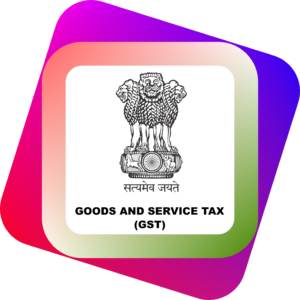The Goods and Services Tax (GST) is a tax on goods and services consumed in India. GST is an indirect tax that has replaced many other indirect taxes in India, such as excise duty, VAT, and services tax. GST has been in force from 1st July, 2017 based on the Goods and Service Tax Act passed by the Indian Parliament on March 29, 2017.
Taxable person under GST
A ‘taxable person’ under the GST Act is someone who conducts business in India and is registered or needs to be registered under the GST Act. A taxable person can be an individual, HUF, company, firm, LLP, an AOP/ BOI, any corporation or Government company, body corporate incorporated under the laws of a foreign country, co-operative societies, local authorities, governments, trusts, or artificial juridical persons.

GST registration can be obtained voluntarily by any person or entity irrespective of turnover. GST registration becomes mandatory if a person or entity sells goods or services beyond a certain turnover.
Service Providers: Any person or entity who provides service of more than Rs.20 lakhs in aggregate turnover in a year is required to obtain GST registration. In special category states, the GST turnover limit for service providers has been fixed at Rs.10 lakhs.
Goods Suppliers: As per notification No.10/2019 any person who is engaged in the exclusive supply of goods whose aggregate turnover crosses Rs.40 lakhs in a year is required to obtain GST registration. To be eligible for the Rs.40 lakhs turnover limit, the supplier must satisfy the following conditions:
If the above conditions are not met, the supplier of goods would be required to obtain GST registration when the turnover crosses Rs.20 lakhs and Rs.10 lakhs in special category states.
Special Category States: Under GST, the following are listed as special category states – Arunachal Pradesh, Assam, Jammu and Kashmir, Manipur, Meghalaya, Mizoram, Nagaland, Sikkim, Tripura, Himachal Pradesh and Uttarakhand.
Aggregate Turnover: Aggregate turnover = (Taxable supplies + Exempt Supplies + Exports + Inter-State Supplies) – (Taxes + Value of Inward Supplies + Value of Supplies Taxable under Reverse Charge + Value of Non-Taxable Supplies).
Aggregate turnover is calculated based on the PAN. Hence, even if one person has multiple places of business, it must be summed to arrive at the aggregate turnover.
Goods and Service Tax (GST) is an indirect tax which is for India on the supply of products and administration. It could be a comprehensive multistage, goal based assess: comprehensive since it has subsumed nearly all the indirect taxes but few; multi-staged because it is forced at each step within the generation prepare, but is meant to be discounted to all parties within the different stages of generation other than the ultimate customer.
It is a mandatory rule under the Government of India, who basically want to save tax and prevents oneself from the cascading effect of tax.
Yes, it is necessary for every tax payer to pay GST who is registered under the GST regime.
CGST and IGST is levied by Central Government, whereas SGST is levied by State Government
CGST and SGST is to be paid for the Intra-State Supply, whereas IGST is to be paid for Inter-State Supply.
If there is delay in filing GST, the penalty charged if Rs 200/- per day. There is no such late fees charged in IGST If the GSTR is not Filed, then there will be a penalty of 10% of Tax due or Rs 10,000, whichever is earlier
If someone has committed fraud, then there will be a penalty of 100% of the tax due or Rs 10,000 whichever is earlier

Soumya Solution is one stop service provider for all kind of food license, trade license, GST registration, Firm registration and IT Returns filing, our decades of experience and expertiese ensures your quality service within spitulated time frame with highly compitative price. our partnership centric approuch aiming to customer delight at utmost priority.
© 2022 By Soumya Solutions
Website Designed & Developed By WEB TORA TECH